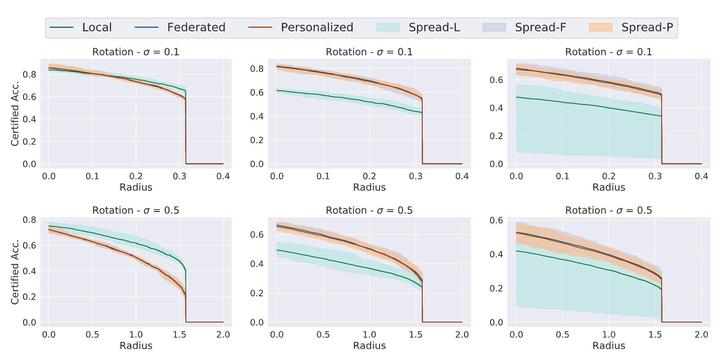
Abstract
Federated learning has recently gained significant attention and popularity due to its effectiveness in training machine learning models on distributed data privately. However, as in the single-node supervised learning setup, models trained in federated learning suffer from vulnerability to imperceptible input transformations known as adversarial attacks, questioning their deployment in security-related applications. In this work, we study the interplay between federated training, personalization, and certified robustness. In particular, we deploy randomized smoothing, a widely-used and scalable certification method, to certify deep networks trained on a federated setup against input perturbations and transformations. We find that the simple federated averaging technique is effective in building not only more accurate, but also more certifiably-robust models, compared to training solely on local data. We further analyze personalization, a popular technique in federated training that increases the model’s bias towards local data, on robustness. We show several advantages of personalization over both~(that is, only training on local data and federated training) in building more robust models with faster training. Finally, we explore the robustness of mixtures of global and local~(\ie personalized) models, and find that the robustness of local models degrades as they diverge from the global model.